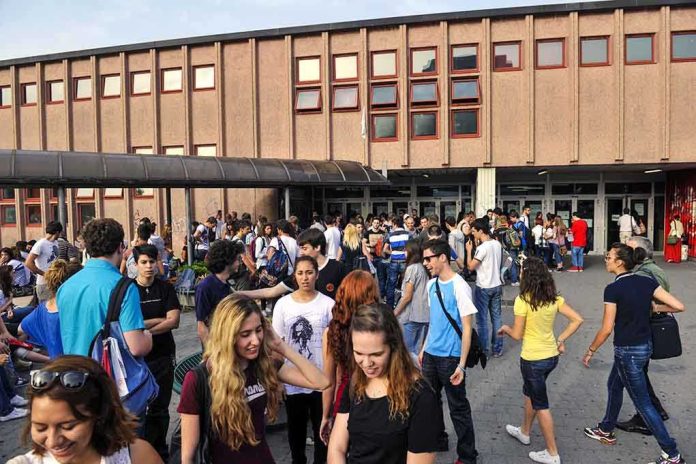
A brewing transportation crisis threatens to leave 150,000 New York City school children without bus service by week’s end, exposing decades of institutional dysfunction and misplaced priorities.
Story Snapshot
- 150,000 NYC students face potential loss of school bus transportation
- Legislative erosion of mayoral control has weakened city’s negotiating position
- Union protection of excessive benefits complicates contract negotiations
- City Hall mismanagement contributes to crisis timing and severity
The Perfect Storm of Government Failure
Three forces converged to create this transportation nightmare: a weakened mayor stripped of negotiating power, a union determined to preserve lavish benefits regardless of cost to taxpayers, and a City Hall that failed to anticipate or prepare for contract expiration deadlines. The result threatens to paralyze the daily routines of thousands of families who depend on school transportation services.
Legislative Undermining Creates Chaos
The steady erosion of mayoral control by state legislators has transformed what should be straightforward municipal contract negotiations into political theater. When elected officials cannot effectively manage basic city services like school transportation, the dysfunction trickles down to every family trying to get their children to school safely and on time.
This legislative meddling reflects a broader pattern where state politicians micromanage local affairs, creating layers of bureaucracy that serve no one except those seeking to avoid accountability. The mayor’s office finds itself negotiating with one hand tied behind its back, unable to make decisive moves that would serve the public interest.
Union Priorities Over Student Welfare
The union’s insistence on protecting what critics call “outrageous perks” reveals a fundamental misalignment of priorities. While families scramble to arrange alternative transportation and parents face potential work disruptions, union leadership appears more concerned with preserving benefits packages that would make private sector workers envious.
This scenario perfectly illustrates how public sector unions can hold essential services hostage to extract concessions that burden taxpayers. The real victims are not the highly compensated transportation workers, but the children who rely on consistent, reliable service to access their education.
City Hall’s Predictable Incompetence
Perhaps most frustrating is City Hall’s apparent surprise at reaching this crisis point. Contract expiration dates do not sneak up unannounced—they are scheduled years in advance. The failure to begin meaningful negotiations early enough to avoid service disruption demonstrates either incompetence or a calculated decision to manufacture crisis for political leverage.
This pattern of crisis management has become the hallmark of progressive urban governance, where every predictable challenge becomes an emergency requiring dramatic intervention. Meanwhile, families bear the real costs of this manufactured chaos, forced to rearrange their lives around government dysfunction.
The Real Cost of Political Theater
Beyond the immediate inconvenience lies a deeper problem: the erosion of public trust in government’s ability to perform basic functions. When city officials cannot ensure that school buses run on schedule, parents rightfully question what other essential services might suddenly disappear due to political gamesmanship.
The solution requires returning power to local elected officials who can be held accountable by voters, demanding union contracts that prioritize service delivery over benefit maximization, and installing competent managers who plan ahead rather than govern by crisis. Until these fundamental changes occur, New York families will continue paying the price for systemic governmental failure.
Sources:
City Hall dropped a ball and 150,000 school kids may get stranded

